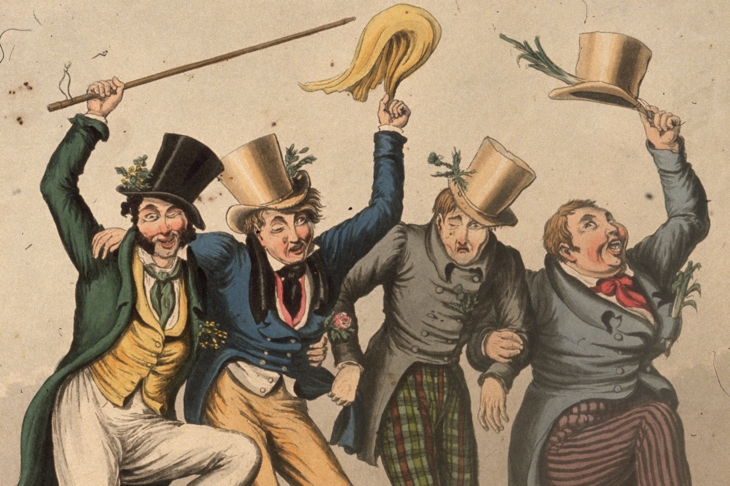Happy St Patrick’s Day to the Irish, one and all. There are plenty of Brits who are a bit Irish, and the Irish government tries to include as honorary Irish, or would-be Irish, pretty well everyone else. Obviously, St Patrick himself wasn’t actually Irish, but a Brit, so thank you, Britain, and well done.
The position of the Irish in Britain – and indeed the British in Ireland, proportionately as large – is one of those historic ambiguities which doesn’t really fit into any of the contemporary narratives about being in or out of things. Ireland, other than six counties, obviously isn’t part of the UK, but it’s not foreign either. Most Irish people feel perfectly at home in Britain, probably much as the Scots or Welsh do; most Brits feel at least as at home in Ireland as in another constituent part of the UK. It’s not just being English speaking; more a sense of a family relationship that independence never quite interfered with.
That ambiguity is recognised in the Government of Ireland Act 1949, which acknowledged that the Republic of Ireland would not be treated as a foreign country for the purposes of British law. The mutual rights of residency and voting mean that the freedom of movement between the two countries is taken as read; not just by the travelling community. It’s why the prospect of re-establishing a border between the North and the Republic is so antipathetic to pretty well everyone, not least the Irish government. If it happens, it’ll be on the say so of the EU, not Dublin or London.
It’s why I find it difficult to get worked up about Scottish devolution. I can sympathise with the unionists who find the whole notion alien and are throwing everything they’ve got into the fight; funnily enough, I find my own Irish friends in Scotland are, if anything, hostile to independence, and I discerned in the Irish government’s stance something less than effusiveness about the prospect – more a sense that it would be very, very inconvenient. Personally I find Nicola Sturgeon’s brand of nationalism – which is pragmatic rather than romantic/historic/sentimental – alien.
But, if Scotland were to go the way of Ireland, I just don’t think it would make so very much difference on the human level. The likes of Fraser Nelson would, thank God, continue to gravitate towards London, on much the same basis that James Boswell did; the English would not be thrown onto their own human resources – the able, ambitious, intelligent Scots would still keep coming. Scotland would not feel like a foreign country for the English and Welsh, any more than Ireland does; for Scots, England would continue to be their natural stamping ground. Obviously politics matters; psychologically, England, Wales and Northern Ireland would be a very different place from Britain as it stands; practically, it would be a nuisance. But Scotland and the rump UK would still feel like two parts of a whole, part of a family. If the Irish precedent shows anything, it’s that independence isn’t the same as separation, still less, alienation – notwithstanding the Troubles, which Scotland would be spared.
St Patrick, British by birth, Irish by acclamation, usefully straddled both countries at a time when the nation state as we know it wasn’t invented. He’s rather a useful figure for our times, then, though the thing that did come to bind these islands was the religion he brought with him. No longer.







Comments